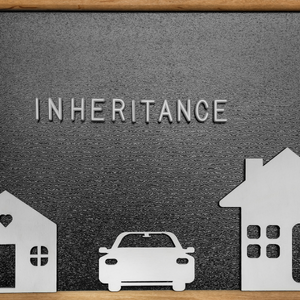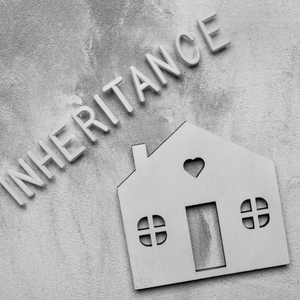
Understanding North Carolina’s Inheritance Laws and Regulations
North Carolina’s laws regarding inheritance provide a roadmap for how property is passed on after someone dies. When a person passes away, the probate courts oversee the process; they step in only to confirm the validity of the will, if one exists.
Absent a will, the state’s intestacy statutes dictate the order in which surviving relatives will inherit, placing the surviving spouse and descendants at the front of the line, followed by parents and more distant relatives. Because real property often represents the largest single asset, care must be taken to understand how joint title, family inheritances, and outstanding encumbrances can affect the transfer.
Married couples in particular should be aware that property held as tenancy by the entirety will transfer automatically to the surviving spouse, freeing the asset from the probate process. Inheritors will also benefit from grasping the difference between probate assets, which require court confirmation, and non-probate assets, which pass directly to named beneficiaries or co-owners.
Tools like revocable living trusts can be harnessed to keep real estate out of probate court entirely, allowing for more specific instructions on how and when property interests are passed down. Familiarity with these details within North Carolina’s statutes, along with guidance from Helping Home Solutions, can position families for a more efficient transfer of wealth, reducing the potential for conflict or delay in the wake of a loved one’s passing.
The Role of Wills in North Carolina’s Inheritance Process
In North Carolina, a will is the cornerstone of the inheritance process, guiding the distribution of an individual’s estate—including real property and entitlements—after death. A properly executed will is the best method to preserve the decedent’s intent, detailing who will receive everything from household goods to investment, vacation, or commercial real estate.
In the absence of a will, assets pass under the state’s intestacy statutes, which often run counter to what the decedent would have wished. By taking the time to write a straightforward and legally enforceable will, a person can significantly reduce the likelihood of family conflict and accelerate the overall probate procedure.
To fulfill formal requirements in North Carolina, the will must bear the testator’s signature and be attested by at least two competent witnesses. Those writing or reviewing a will should also familiarize themselves with topics such as the elective share available to a surviving spouse and how to provide for minor children.
The executor, the individual named in the will, shoulders the duty of marshaling and distributing estate assets while adhering to North Carolina’s probate framework. Their work is critical to translating the decedent’s stated wishes into reality and to completing the estate settlement in an orderly fashion.
Intestate Succession: What Happens If You Die Without a Will in North Carolina?

When someone dies in North Carolina without leaving a will, state intestacy laws step in to untangle the fate of their real estate and personal property. These statutes lay out a strict order that tells us who gets what, directing the estate to the closest surviving relatives in a set hierarchy.
Typically, the surviving spouse, then the children, parents, and finally siblings, are in line to inherit. If the deceased has a spouse but no kids or grandkids, that spouse claims all of the personal property and a sizable slice of the real estate. If the spouse coexists with children or other direct heirs, the law assigns fixed portions to each group, complicating the picture a bit. Outside the immediate circle, more distant kin—like grandparents, nieces, nephews, or even cousins—may step in and share the estate.
Should no living heirs ever turn up—neither immediate nor distant—any property that remains could eventually be transferred to the state, a process known as escheat. The process can become tricky, especially in blended families where different groups of heirs intersect, or in situations where property is owned jointly. Because of these complexities, grasping North Carolina’s intestacy statutes is essential to safeguarding rightful inheritances and steering clear of disputes over the real estate and other assets left behind by someone who forwent a will.
Spousal Rights and Elective Share Laws in North Carolina Inheritance Cases
In North Carolina, it’s essential to fully grasp how spousal rights and elective share statutes work to manage inheritance situations, especially when real estate and property stakes are involved. State law provides a set of rights to the surviving spouse to guard against disinheritance and to clarify the treatment of jointly acquired and separately owned property.
The elective share statute permits the surviving spouse to elect against the will and take a legislatively prescribed fraction of the deceased spouse’s estate, overriding the testator’s intent. The fraction depends on the marriage’s duration, scaling from 15 percent if it lasted less than five years to a maximum of 50 percent if it lasted through the spouse’s death.
These protections secure the surviving spouse a fair share of whatever the deceased spouse owned at death, which often includes major real property. Couples are encouraged to familiarize themselves with these rules so they can arrange their holdings and estate plans to match their intentions, keeping financial and familial harmony in focus. Knowing these rights also empowers surviving spouses to contest flawed testamentary documents with confidence when litigation becomes necessary.
Navigating Probate Court in North Carolina: A Guide for Heirs
Going through probate court in North Carolina can give heirs plenty to juggle, since you’ll need to know both the state’s inheritance rules and the rights to property being passed on. When someone dies, the probate court steps in to verify the will, if there is one, and to set things in motion so property is passed on according to the law.
Here in North Carolina, the executor—or personal representative—carries the day and is responsible for collecting the estate’s assets, paying off debts and taxes, and then handing what is left to the rightful heirs. Heirs themselves need to stay on top of deadlines and filing requirements, since missing a timeline can lead to needless hold-ups.
The probate court keeps an eye on every step to head off arguments between heirs and to make sure every legal step is properly checked off. Heirs must keep a close eye on real estate, since a house, land, or other property can be the estate’s biggest single item; state law lays out how those assets get dealt with.
If the deceased left no will, the law of intestacy steps in to carve up property according to the blood relationships in the family tree. Heirs who want to make sure they get through these stages with confidence and without costly mistakes will find that an attorney with a solid grounding in North Carolina probate law is an invaluable partner for every twist and turn ahead, especially when exploring options to sell your home for cash in Simpson or nearby cities.
Executor Responsibilities and Duties Under North Carolina Probate Law
In North Carolina, the executor of a decedent’s estate shoulders a mix of legal and practical duties critical to the orderly settlement of the estate, especially when real estate and property rights are involved. The executor first steps in to marshal the decedent’s property, pay off debts and taxes, and then distribute the residual value to the heirs or beneficiaries named in the will.
The job starts the moment the will is lodged with the probate court of the decedent’s home county; this filing is the formal moment the probate process gets underway. Following that, the executor must catalog all estate assets, real or personal, and if the law or the heirs demands, arrange for their appraisal.
The executor also must engage with creditors promptly, sending formal notice of the probate to anyone who may have a claim. Valid debts are settled from the estate’s coffers. Throughout, the executor must keep meticulous files of all actions, correspondence, and financial dealings, both to satisfy the court and to ensure full compliance with North Carolina inheritance law.
When settling an estate, an executor might need to sell real estate to pay off debts or to divide assets fairly among heirs, while still following the directions the deceased left behind. It is critical during this process to stick precisely to the established legal timelines and procedures. Doing so protects the executor from potential personal liability and guarantees that the transfer of property rights is carried out seamlessly according to state law.
How to Contest a Will in North Carolina: Legal Grounds and Procedures
In North Carolina, disputing a will hinges on clear legal grounds and a step-by-step approach. To prevail, you must show convincing evidence of one or more flaws: undue influence, a gap in testamentary capacity, fraud, or mistakes in execution.
Undue influence is present when someone pressures the testator to change the will in ways that aren’t aligned with their genuine wishes. Testamentary capacity is lacking when the testator does not grasp what a will is, what their belongings are, or the consequences of their choices. Fraud is when a false statement or concealment leads the testator to sign in misleading circumstances. Improper execution means the will doesn’t meet the state’s formal rules, such as the required number of witnesses or correct wording—issues that can complicate probate matters and sometimes create urgency to sell your home in foreclosure.
The challenge is launched by filing a caveat with the clerk of the court where the probate proceedings are ongoing. This document formally contests the will and sets the stage for a court hearing where the matter is tried before a jury, while heirs may also consider options to sell your home for cash in Winterville or nearby cities.
Life in litigation means gathering witness affidavits, financial ledgers, prior wills, or any paper trail that corroborates your argument. Given the nuances of North Carolina intestacy law and the weight of evidence, retaining a seasoned estate lawyer is advisable. They will map out the route, avoid procedural pitfalls, and fight for your rightful share with informed legal acumen.
Resolving Disputes Among Heirs and Beneficiaries in North Carolina Estates
When disputes surface among heirs and beneficiaries in North Carolina estates, navigating state inheritance laws—especially concerning real property and ownership rights—becomes essential. The probate system here dictates how estates are to be divided, but conflicts commonly erupt over how much an asset is worth, what the will truly means, or claims that the division is unfair.
Every heir or beneficiary should understand their rights under state law to avoid being disadvantaged. Mediation is frequently the chosen first step, fostering dialogue and compromises outside a courtroom’s glare.
If a negotiated settlement proves elusive, the remaining option is court intervention, where a judge will decipher the will or relevant trust documents in light of the statutory framework. If intestacy is in play—meaning no will was left—knowledge of the intestate succession rules becomes crucial since those rules will fill the gap and dictate how property is clustered among surviving kin.
Attorneys who specialize in North Carolina inheritance law are invaluable to heirs and beneficiaries. They clarify statutory duties, protect ownership interests, and help ensure that every step conforms to the law.
Guardianship and Conservatorship Considerations Under North Carolina Law
In North Carolina, understanding how guardianship and conservatorship intersect with inheritance law is essential when real estate and property interests are involved. Guardianship assigns a trusted individual to assist either a minor or an incapacitated adult, addressing all aspects of daily life—housing, education, and medical care. This appointed guardian is charged with securing a stable and nurturing environment, ensuring the ward is safe, fed, and sheltered.
On the financial side, conservatorship focuses strictly on property and money. The conservator manages the ward’s finances, real estate, and investments, executing duties such as paying bills and, when prudently advised, selling land to protect the ward’s financial welfare. North Carolina law details when guardianship or conservatorship is required, stipulating that these measures may only commence if a court concludes the individual can no longer make rational decisions about property or inheritance.
Judicial supervision remains a non-negotiable element. Only the circuit court can appoint a guardian or conservator, and the court rigorously screens each nominee and demands periodic, transparent accounting. This judicial control ensures that real property is handled competently and flows strictly according to North Carolina legal standards. The journey to establish guardianship or conservatorship begins with filing a comprehensive petition, securing medical expert testimony on the individual’s incapacity, and then presenting the case at a formal court hearing.
Families dealing with these matters ought to turn to lawyers experienced at the crossroads of guardianship and inheritance law. When guardianships and conservatorships hinge on inheritance questions, the attorney must command the rules governing trusts, estates, and real estate in North Carolina. Only then can the guardian shield the ward’s stake in land and property from the outset, securing each right and interest with meticulous care.
Special Provisions for Minor Children in North Carolina Inheritance Law

North Carolina inheritance statutes embody measures specifically designed to safeguard the property rights of minor children in matters of real estate and personal property. Such provisions ensure that the distribution of assets gives precedence to the well-being of minors, typically mandating that a guardian or trustee administer any property that a child receives until he or she attains the age of majority.
During probate proceedings, a court may designate a guardian ad litem to advocate for the minor heirs, thereby safeguarding their interests and enforcing conformity with state probate rules. Should a parent die intestate, the intestacy rules of North Carolina allocate a substantial share of the estate to minor children, encompassing both real and personal property.
As a complement to these statutory safeguards, many estate planners create trusts to hold and regulate assets intended for minor children. Such trusts can stipulate incremental distributions over a period or condition disbursement upon the attainment of specific developmental or educational benchmarks. Collectively, these statutory and discretionary measures strive to ensure the continuity of the minor’s financial security and the protection of the minor’s property rights in North Carolina.
Protecting Family Heirlooms and Personal Property During Estate Distribution
When managing estate distribution under North Carolina inheritance law, careful attention to personal property and family heirlooms is indispensable. North Carolina statutes prescribe certain protocols governing the allocation of personal property to heirs, demanding that practitioners and families alike remain vigilant to ensure the decedent’s treasured possessions are accorded the respect and continuity intended.
The cornerstone of protecting such items is a detailed and legally enforceable will or trust that specifically identifies beloved belongings—be they fine jewelry, antique furnishings, or other metal possessions. By articulating these wishes perspicaciously, a decedent can guard sentimental value and family history from unintended dilution.
The appointed executor is entrusted with the critical duty of conducting a thorough inventory, unambiguously recording each item, and executing the directives contained in the governing document. Familiarity with spousal elective-share statutes, which afford a surviving spouse a portion of the estate irrespective of the testator’s nominal bequests, remains equally essential to forestall divisive litigation.
Beneficiaries, too, ought to remain vigilant, for the probate court is not uncommon ground for competing assertions regarding heirlooms. A proactive approach that encompasses comprehensive estate planning—crafted in consultation with an attorney versed in North Carolina probate practice—permits families to traverse the probate landscape with purpose, ensuring that the legacy anchored in cherished belongings is preserved intact.
Tax Implications of Inheritances in North Carolina: What Beneficiaries Should Know
When heirs in North Carolina confront an inheritance of real estate, grasping the relevant tax dimensions becomes essential for sound estate administration. Although the state imposes neither an inheritance tax nor an estate tax, the estate might still confront federal estate tax obligations if the gross estate exceeds the prevailing federal exemption amount. The current exemption is reset annually, so heirs should verify the latest figure before concluding estate settlement.
Furthermore, the disposition of the inherited real estate can trigger capital gains taxes if the heir chooses to sell. However, the gain is measured against a basis that is “stepped up” to the property’s fair market value on the date of death. This basis adjustment can substantially reduce taxable gain, frequently resulting in little or no federal capital gains tax liability upon the sale.
Heirs must remain alert to any delinquent property taxes associated with the inherited real estate; liability for these taxes transfers to the beneficiary upon title transfer. Given the interplay of federal and state tax rules and the disparity of liability that can emerge, heirs benefit from engaging a tax professional or fiduciary lawyer fluent in North Carolina probate and tax statutes to ensure that tax filings are precise and that the transfer of real estate is executed in a tax-efficient manner.
What Is the Order of Inheritance in North Carolina?
North Carolina regulates intestate succession—distribution of property when an individual dies without a will—through statutory protocols that prioritize the surviving spouse in the order of inheritance. When the decedent leaves no living descendants, the spouse is entitled to the entire estate. Conversely, when the decedent leaves children or grandchildren, the estate is apportioned between the spouse and the descendants. The statutory scheme quantifies the share to which the spouse is entitled, guaranteeing both a protective and a participatory role in the transfer.
In the absence of a surviving spouse and descendants, intestate property devolves through a fixed statutory order. Parents inherit first; if neither parent survives, the estate passes to siblings of the decedent and, in the case of a deceased sibling, to that sibling’s children. Should the decedent leave no surviving parents, siblings, or their descendants, the estate is next available to grandparents, and, absent them, to more remote kindred as specified in the statutory hierarchy. The precise ordering of these beneficiaries is crucial, as it fixes the legal claims that govern the transmission of property.
Clarity regarding the order of intestate succession is essential in North Carolina real property practice, particularly when addressing the transfer of title upon a decedent’s death. Knowledge of the default distribution scheme fosters compliance with statutory requirements and, equally important, reduces the likelihood of intra-family discord by foretelling the legal outcome of the intestate estate. Adherence to these rules is therefore both legally and practically advisable for all estate practitioners and surviving relatives engaged in the administration of a loved one’s estate.
How Much Can You Inherit in NC Without Paying Taxes?
In North Carolina, anyone planning their estate really needs to grasp how inheritance laws shape property rights. A key part of that is knowing how much you can pass along without a tax bite, and you have to keep both state and federal rules in mind.
Right now, North Carolina does not have a state inheritance tax or an estate tax. This means, generally speaking, heirs don’t pay tax when they receive property located in the state. Still, they do need to remember that the federal government can have a say.
The federal estate tax exemption amount is adjusted over time; for 2023, it is $12.92 million per person. Estates that total below that figure do not face federal estate tax.
That’s why most North Carolina estates stay well below the federal line, letting heirs receive large gifts without taxes. Still, if real property is involved, or if the estate has out-of-state assets or sizeable transfers of wealth, the situation can get complicated. Careful legal advice is then essential to sort out the rules and stay in line with federal laws and any future state rules that might come up.
Who Are the Legal Heirs in North Carolina?

Dividing inherited land in North Carolina requires a solid understanding of the state’s laws governing intestate succession as well as its rules on real estate. If a person dies without a will, property passes according to the intestacy statute now in effect.
The surviving spouse, the children, and, when there is neither spouse nor children, siblings or more remote relatives, each have a statutory right to a share. When a specific parcel is earmarked for distribution, figuring the exact share for each heir can quickly become difficult, particularly if multiple relatives assert a claim.
Heirs are advised to negotiate the division informally and to seek a disinterested mediator if the talks stall. If agreement remains elusive, the sole option may be a partition action; the court will either divide the property in kind, when feasible, or order its sale to divide the resulting sale proceeds among the owners.
Mapping out the partition options ahead of time and enlisting a North Carolina lawyer with a focus on estate succession is the prudent step toward a formal division that limits later quarrels and protects every heir’s legal claim.
How Do You Divide the Heir Property in NC?
Dividing inherited land in North Carolina means getting to grips with the state’s laws on intestate succession and real estate rights. When someone passes away without leaving a will, the property descends according to the intestacy statute in force.
Heirs legally entitled to a share include the surviving spouse, any children, and, in the absence of a spouse or children, perhaps siblings or more distant relatives. When a parcel of land is tagged for the estate’s distribution, calculating each heir’s interest can get complicated, especially if several family members claim entitlement.
Heirs are encouraged to discuss the partition among themselves and, if needed, to involve a neutral mediator to draft a settlement. When negotiations crumble, a partition lawsuit may be the only recourse; a judge will either physically divide the land, if possible, or order a public sale, splitting the proceeds among the beneficiaries.
Gaining a clear picture of the partition landscape and consulting with a lawyer focused on North Carolina succession law is the best way to formalize the division, minimize disputes, and safeguard each heir’s claim to the property.
Have you inherited a home and need to sell quickly? Whether you want to avoid costly repairs, settle an estate smoothly, or prefer a hassle-free sale, Helping Home Solutions is here to help. We provide fair cash offers, handle all the details, and make the process seamless so you can focus on what matters most. Contact us today at (252) 541-7149 for a no-obligation cash offer and take the stress out of selling an inherited property.
Helpful North Carolina Blog Articles
- Guide To Selling Your Home By Owner In North Carolina
- Understanding North Carolina Inheritance Laws
- Sell Your Home In Foreclosure In North Carolina
- Selling A House With Unpermitted Work In North Carolina
- Closing Costs Without A Realtor In North Carolina
- Mastering Contingencies In North Carolina Real Estate Sales
- Selling A Hoarder House In North Carolina’s Real Estate Market
- Understanding Squatters Rights In North Carolina
- How To Successfully Sell Your House With Tenants In North Carolina

| TESTAMENTARY TRUSTS | LAST WILL AND TESTAMENT | DEVISEE | WILL AND TESTAMENT | TESTAMENTARY | INTESTATE SHARE |
| INTESTATE PROPERTY | ECOURTS | NORTH CAROLINIANS | WEDLOCK | MARRIED COUPLE | TOTAL ASSETS |
| TENANCY BY THE ENTIRETY | TENANTS BY THE ENTIRETY | JOINT TENANT | JOINT PROPERTY | TENANCY BY ENTIRETIES | ATTORNEYS |
| LAWYER | CLERK OF COURT | CLERKS OF COURT | LINEAL DESCENDANT | INFORMATION | DEED OF CONVEYANCE |
| INTESTATE SUCCESSION ACT | FIDUCIARIES | FIDUCIARY | MONEY | GIFT | ESTATE ADMINISTRATION |
| LIFE INSURANCE POLICY | INVESTING | INTERNET | CREDITORS | AUTOMOBILES | |
| BANK | AFFIDAVIT | ADOPTED CHILDREN | ADOPTION | U.S. | THE UNITED STATES |
| STEPCHILDREN | POWER OF ATTORNEY | HEALTHCARE POWER OF ATTORNEY | PAYMENTS | PATERNITY | LIEN |
| LIABILITY | INVENTORY | FOSTER CHILDREN | CAVEAT | BANK ACCOUNT | OF PERSONAL PROPERTY |
| OR MORE CHILDREN | CHILDREN OR DESCENDANTS OF | WITHOUT A WILL IN | A WILL IN NORTH | TWO OR MORE CHILDREN |
